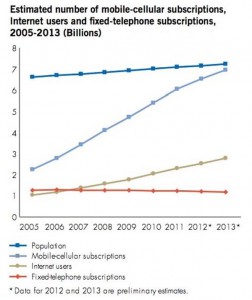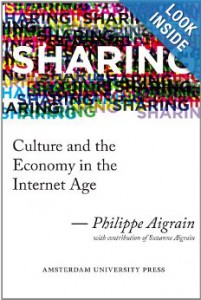![]() There are (almost) as many cell phone subscriptions as people
There are (almost) as many cell phone subscriptions as people
By Tyler Falk | July 2, 2013
Quartz dug up this graph from a new U.N. report showing the world’s rapid adoption of cell phones.

Yes, you’re seeing that right, there are almost as many cell phone subscriptions as there are people. It’s an astounding statistic considering that the number of cell phone subscriptions was only a fraction of the population in 2005. Now, the U.N. projects that there will be 6.8 billion cell phone subscriptions while our total population is just over 7 billion. However, subscription growth rates have fallen to their lowest level in the last year. Still, that puts global penetration of cell phones at 96 percent, 89 percent in developing countries. And it’s developing countries which account for over 77 percent of the world’s cell phone subscriptions and, increasingly, those phones are smartphones.
While cell phone use is impressive, we can’t overlook how quickly more people around the world are connecting to the Internet. There are now about 2.7 billion people using the Internet, up from around one billion in 2005. But while that number is growing, there are regional differences in who is connected and who isn’t. For example, 77 percent of the developed world is connected, while sub-Saharan Africa has the lowest rate with less than 20 percent of the population using the Internet, though Itnernet access is on the rise there.
[Read more from Quartz/U.N. report]
Continue reading “SmartPlanet: As Many Cell Phones as People, But….”





